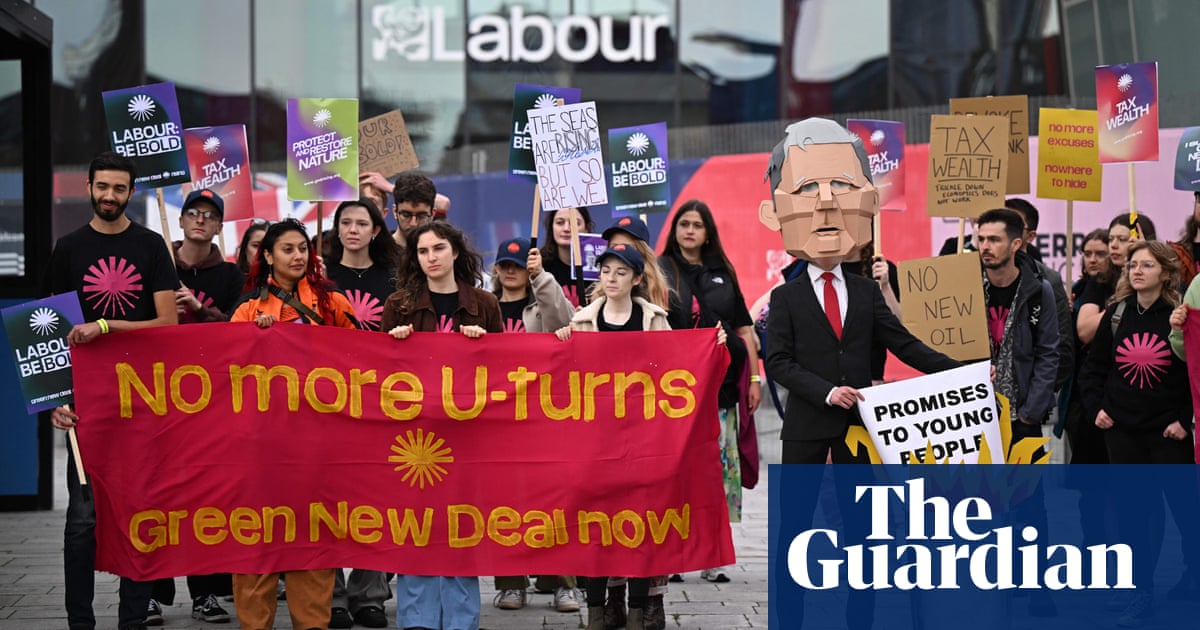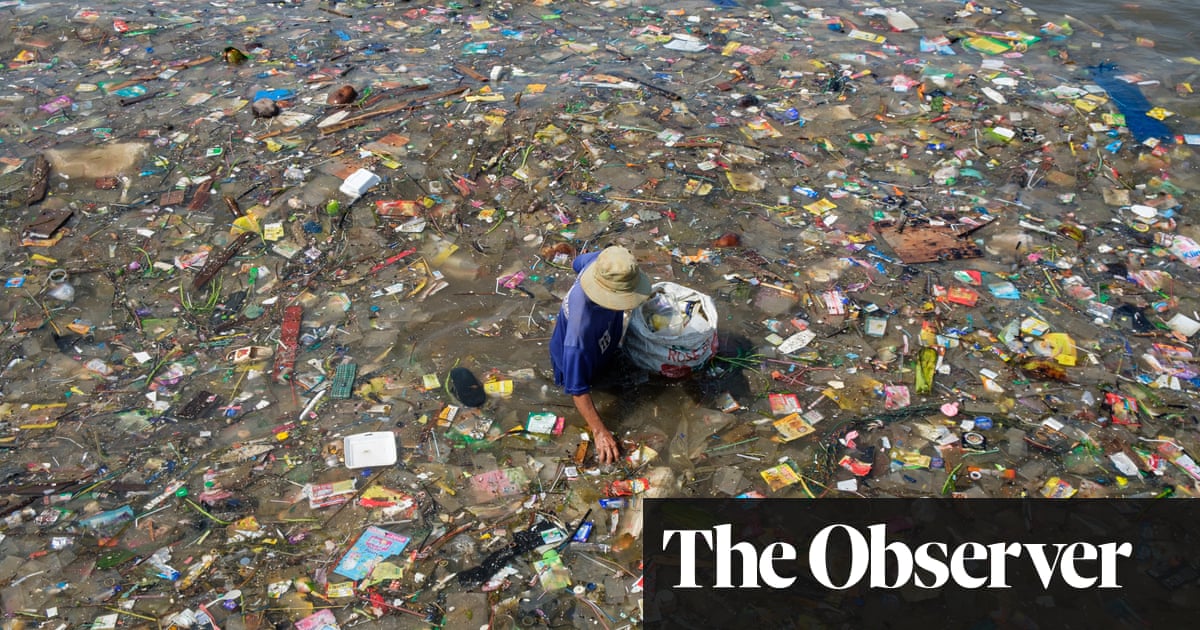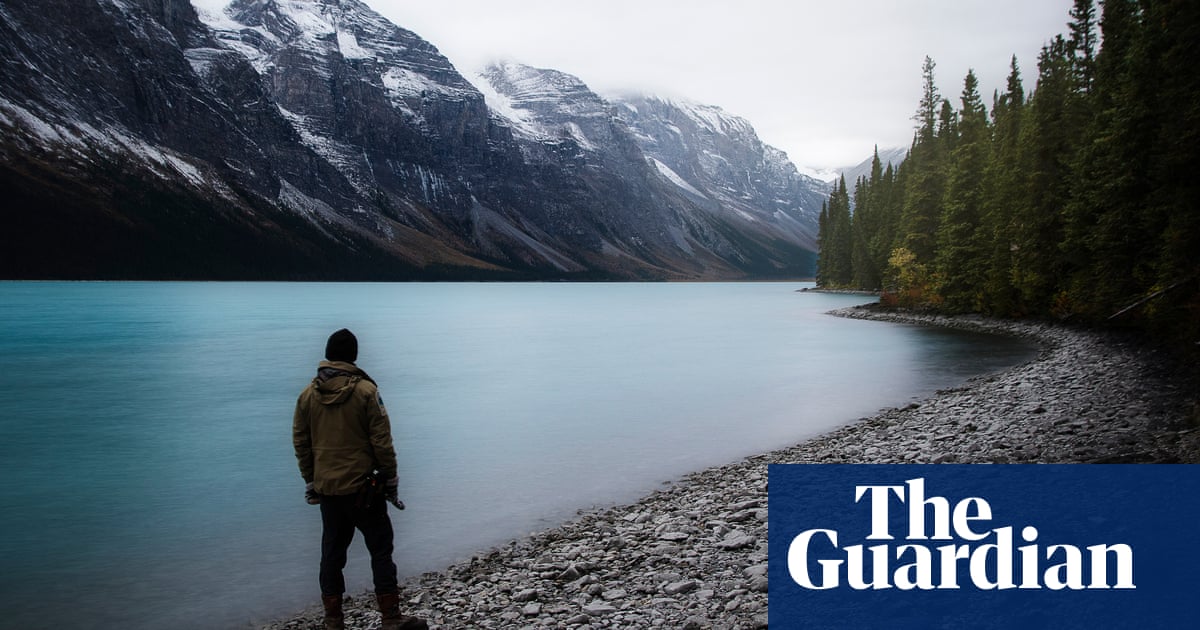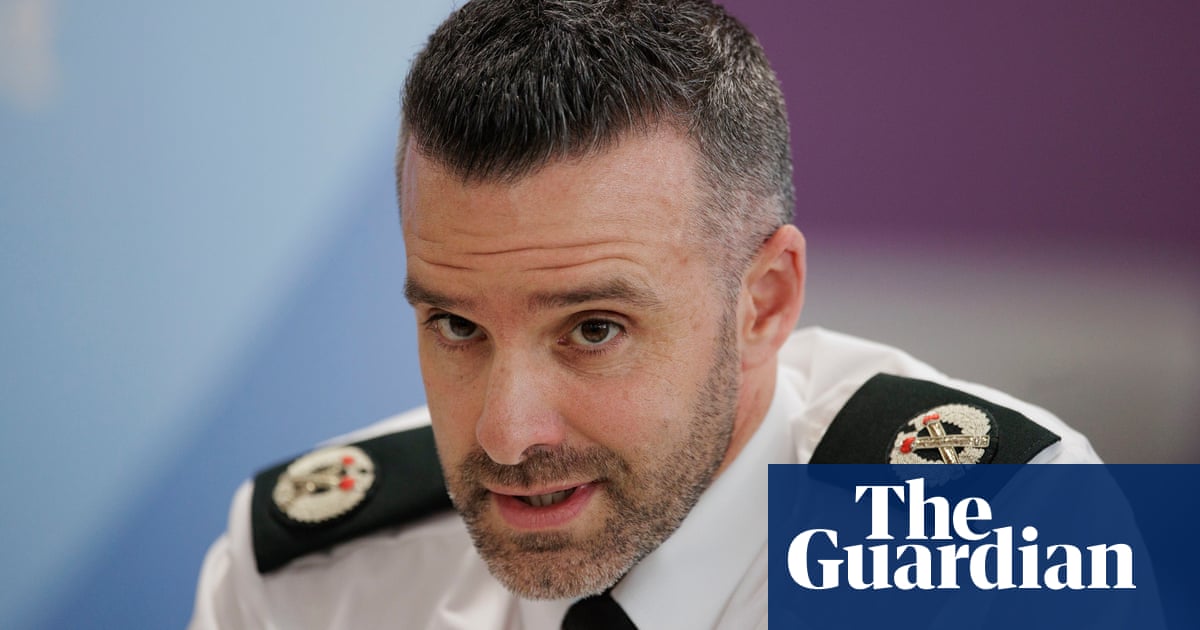Rachel Reeves talks to business executives. She met some in December, after a £150,000 donation to Labour from a financial services firm. She met more in January, at capitalism’s annual jamboree in Davos. And just this week she told a meeting of City bankers their “fingerprints are all over” Labour’s manifesto.
But she does not talk so much to young people worried about the climate emergency. Or so 23-year-old Zak found when he tracked Reeves down to a cafe where she was campaigning on Wednesday morning. “I’m a young person with Green New Deal Rising,” he said, approaching her.
She peered at him, warily. “We’re literally just about to go,” she said, then picked up her handbag and walked away.
Green New Deal Rising (GNDR) does not block roads, smash windows or douse paintings with soup. Instead the youth-focused climate campaign tries to engage politicians and work the political system. It has a plan to short-circuit electoral politics by endorsing a cross-party slate of candidates it hopes will push progressive action on the environment on to the agenda.
“Rachel, please, you barely speak to young people, you barely talk to us,” Zak, whoasked for his surname not to be published, shouted after the shadow chancellor, dodging besuited lackeys to pursue her into the streets of Swindon.
“Rachel, young people are desperate. Climate scientists are saying it’s a code red for humanity, but you’ve backed away from £28bn of climate investment, you refuse to tax the super-rich, you’re refusing to invest in our communities.”
Shortly after, the scene was broadcast on TikTok, Instagram and X, showing Reeves’s refusal to reply thousands of the campaign’s followers.
Faced with such situations, Keir Starmer is fond of saying Labour has changed: it is no longer the party of protest. On that the Labour leader’s critics agree: as the presumptive government in waiting, and one that has U-turned already on key environmental and social policies, Labour has changed and is now the party facing protest.
“The Labour party are on track to become our next government but they are not offering us the solutions we need,” said Fatima Ibrahim, the GNDR co-director. “Instead they’re telling us there is no money, whilst courting corporations and refusing to tax the super-rich.”
When the Guardian visited Ibrahim at GNDR’s offices in Bethnal Green, east London, a fidget spinner lay on a table next to a laptop. About 10 young organisers, none over the age of 35, were crammed in, hunched over desks or on phones. “In the election period it’s been quite busy,” Ibrahim said.
On the wall was a large map of the UK, identifying key areas where GNDR hopes its campaigning can sway the vote. Last weekend they were in Brighton Pavilion, where they knocked on more than 1,000 doors for Siân Berry, who is hoping to succeed Caroline Lucas as its Green MP. This weekend they will be in Bristol Central, where Carla Denyer, the Greens’ co-leader is thought to have a strong chance of unseating Thangam Debbonaire, Labour’s culture spokesperson.
Controversially, GNDR is also backing six Labour candidates: Olivia Blake in Sheffield Hallam, Clive Lewis in Norwich South, John McDonnell in Hayes and Harlington, Bell Ribeiro-Addy in Clapham and Brixton Hill, Zarah Sultana in Coventry South and Nadia Whittome in Nottingham East. This is despite the party being the butt of much of the group’s critical campaigning, and now also being notorious for its ruthless moves to silence dissent.
In all, counting independents and a couple of Lib Dems – but no Conservatives – GNDR has identified 15 candidates who align with its aims and politics, and who it hopes will form a “climate caucus” within parliament.
Ibrahim said: “We have to start building the political bloc who can be a vanguard for the green new deal, and so in this election, we have seats and candidates that we’re organising around.
after newsletter promotion
“We’ve seen it with even Caroline Lucas, the sole Green MP, and what she’s been able to do over the last 10 years to make climate change mainstream … So we’re hoping we can replicate that with a group of MPs who are aligned around the green new deal and who are then supported by a movement that is organising on the outside.”
Ibrahim and her co-director, Hannah Martin, started campaigning for a green new deal in 2019, taking inspiration from the the US green new deal movement. “And seeing the energy of ‘the Squad’, the political grouping who were leading that in the US, matched by a vibrant youth movement, the Sunrise Movement, we were inspired in recreating that,” Ibrahim said.
In 2021, Ibrahim and Martin decided the policy work they had begun with would not be enough and decided to focus on the movement side, and Green New Deal Rising was born. They also pivoted to youth organising, “because we were young people and we wanted to organise people like us”, Ibrahim said.
A week before the Guardian met Ibrahim, GNDR activists turned up at Labour’s clause V meeting, where the party’s bigwigs were gathering to sign off on the manifesto. “I just want to talk about how you’re letting our generation down,” a young woman was recorded telling David Lammy, the shadow foreign secretary.
GNDR hopes to reignite a youth interest in electoral politics that was last seen in the grassroots group Momentum, before Jeremy Corbyn was expelled from the Labour party. But where Momentum had deep ties to Labour and party politics, GNDR’s activism is focused on the cause. Its targeting of Labour is instrumental, rather than ideological.
“I think that’s where we’re different to other movements,” said Ibrahim. “It’s that we’re combining the kind of deeply political organising with social movement vision and radicalism.
“We particularly wanted to organise gen Z and millennials because it felt like it was a generation that had a shared story and a shared experience of the world. Like whether you’re 31 like me or you’re 16, we have something in common, which is we’ve only known crisis – we were born into a climate crisis, there’s been economic crashes, work is becoming increasingly precarious, our communities are changing for the worse in many ways – and that could bind our our generations together to fight for an alternative.”



